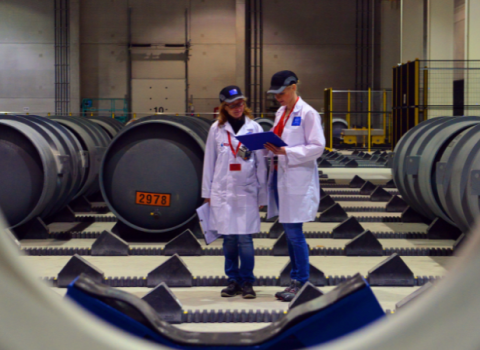For Miguel Arias Cañete, nominee for the post of Commissioner for Climate Action and Energy, the bear traps going into his hearing yesterday were big and obvious. After last night, he is confronting several more.
Following a tumultuous hearing, Socialist (S&D) MEPs are seeking a delay on his approval. "Socialists and Democrats asked for the postponement of the vote on Commissioner-designate Miguel Arias Cañete ahead of a meeting between the spokespersons of all political groups in the energy and environment parliamentary committees this morning," they said in a statement on their website.
S&D members are delaying a decision until they see whether their candidate, Pierre Moscovici, Commissioner-designate from France, gains support from the centre-right European People’s Party (EPP) in his hearing today (2 October).
A gentleman’s agreement, whereby the EPP and S&D back each other’s candidates, threatens to unravel spelling a big problem for the President-elect, Jean-Claude Juncker.
Stormy hearing
The most controversial candidate by far, Cañete ran into a tide of criticism over past links with the oil industry, last-minute changes in his statement of financial interests and sexist comments made in the past.
According to the Spanish newspaper El Pais, the former Agriculture Minister changed his financial declaration in the European Parliament yesterday, to add the €5,000 per month he earned during the 2011 elections as his party’s electoral coordinator.
That fuelled the fire, and the hearing started in dramatic fashion when Kathleen Van Brempt, a Belgian MEP, asked on behalf of S&D for the Parliament’s Legal affairs (JURI) committee to step into the row.
For the first hour, it was a cauldron for the uncomfortable-looking Cañete. After Juncker offered him the energy and climate change he divested his shares in two oil companies Ducar and Petrologis. “Neither my wife, nor my brother have shares or positions in these companies,” Cañete told MEPs. They are very small companies at any rate, he added, and are not involved in drilling or selling fuel.
Herbert Reul, a centre-right MEP, spoke in support saying, “What we are talking about here is not a global oil company…but one with 50 employees.”
Cañete also apologised for inappropriate comments made in the past. After a debate against a female candidate on Spanish television, he had said debating with woman was hard because a man who used his "intellectual superiority" might appear chauvinist. It was “a mistake”, he said.
This invited one inevitable barb amongst many, with the far-left Spanish MEP Paloma Lopez Bermejo telling Cañete, “I would have liked to have a debate with you, but it would have been challenging since I’m a woman.”
Ahead of the hearing, a few dozen people, mainly from left-wing and Green groups protested outside the parliament, holding up banners which said "Stop Cañete".
An online petition to block the Commissioner-designate, giving him the moniker "Señor Petrolhead", gathered almost 400,000 signatures.
Handling the issues
Cañete’s questionable personal credentials apart, for many MEPs on the left, there is an inherent contradiction in merging energy with climate change.
“Please convince me of your interest in tackling climate change,” Gerben-Jan Gerbrandy MEP said early in the hearing. Cañete obliged. Anticipating his critics well, he gave full-throated support to action on climate change. “It’s the world’s most difficult task,” he said. He also strongly praised the work of the Intergovernmental Panel on Climate Change (IPCC).
Cañete toed Juncker’s line on fracking, saying, “the energy mix of a member state is entirely up to them.” However, his domestic policies as Minister of Environment in Spain did not escape MEPs’ scrutiny. He faced sustained attacks on his country’s exploration for shale gas, and on the import of oil from Canada, a country exploiting tar sands.
The decision to go for fracking in Spain was not his, Cañete claimed. My part was to set the environmental criteria, which were very robust, he said.
Amid the rancour, MEPs missed the opportunity to ask a practical question: what would be the exact distribution of responsibilities between Cañete and the Commissioner-designate for the Energy Union, Alenka Bratušek?
Cañete had good reason to feel relieved when Roger Helmer, a UK Independence Party MEP, provided him with some respite by denying climate change in his statement from the floor. Cañete answered him commandingly. “It’s not a question of opinions, it’s a question of statistics,” he said.
“Juncker was right to give you this portfolio, you are competent,” said Françoise Grossetête, a French MEP. His handle on the dossier was sound, some conceded afterwards, but it may not be enough to save him.





 A unique international forum for public research organisations and companies to connect their external engagement with strategic interests around their R&D system.
A unique international forum for public research organisations and companies to connect their external engagement with strategic interests around their R&D system.